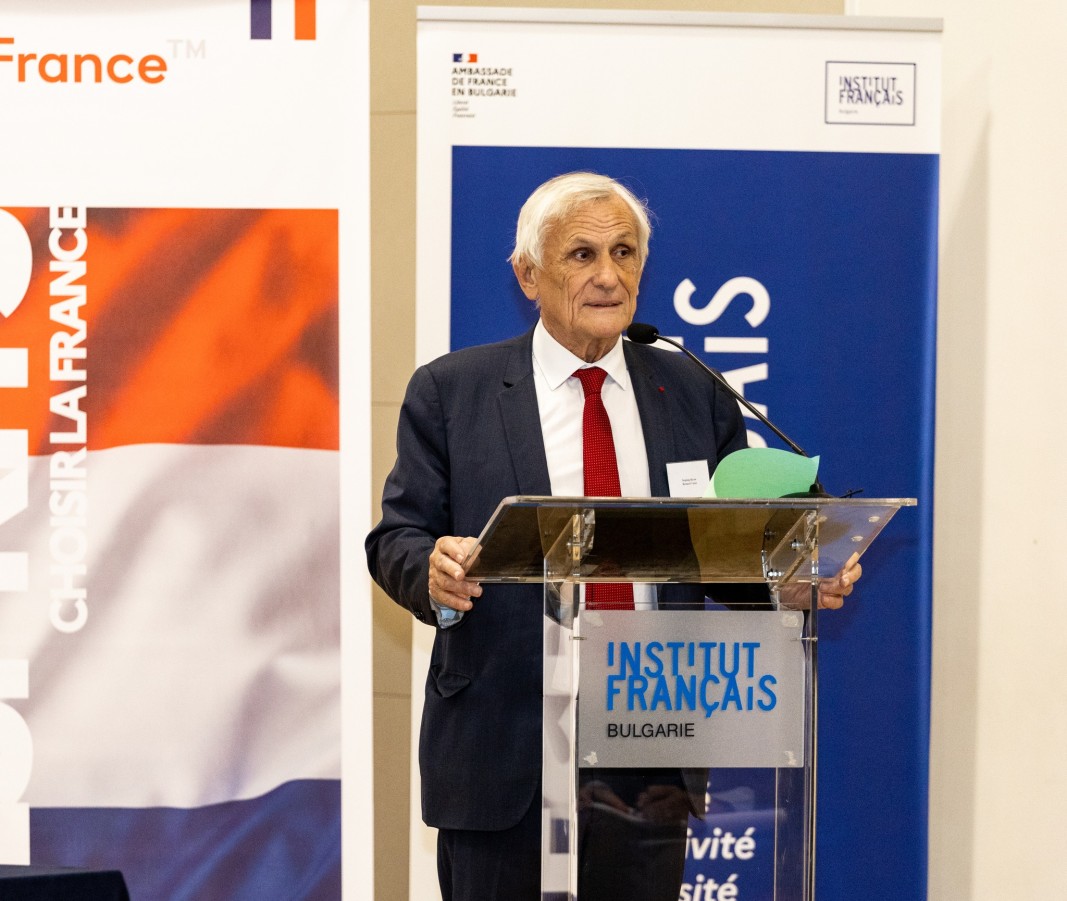In Bulgaria there are laws, the toolbox is there, but it is not being used, says Bernard Vatier, chairman of the Paris Bar. The International Bar Association Conference (CIB) he is chairman of initiated a conference in Sofia with a focus on fighting corruption as a perpetually renewed challenge. The forum was organized by the French embassy in Bulgaria and the French Institute on the occasion of the 10th anniversary of the establishment of the Club of French-speaking Lawyers in Sofia and the 30th anniversary since Bulgaria became a member of the International Organization of La Francophonie.
Lawyers, magistrates and representatives of public institutions debated on the experience and the current reforms taking place in France and in Bulgaria.
“The aim of the conference is to make a summary of the existing means for fighting corruption in Bulgaria and in France, two countries members of the EU, and from the experience of one, the other can draw on the practice that is best for them,” Bernard Vatier says in an interview with Radio Bulgaria. 
He says the proficiency accumulated in other countries must be used so as to boost the tools for fighting corruption which Bulgaria already has.
“I was very impressed by what the former deputy minister of justice said (Andrey Yankulov – editorial note). He explained that the legal provisions are there, but that there is not much point to them because the behaviour has not changed. That is, I believe, the big problem connected with corruption. Corruption is a question of upbringing. People get accustomed to corruption, and these models of behaviour need to change.”
Fighting corruption in this sense is based on upbringing or prevention, but also on sanctions, i.e. justice has to sanction it. Punishment mechanisms need to be put in place. 
“For the purpose, magistrates have to be independent,” Bernard Vatier goes on to say. “This takes us back to the problem of the independence of the justice system and the role of the prosecutor’s office. We have to be very alert because if there is no punishment corruption acquires legitimacy. If I don’t get caught I have every right to go on. With corruption, there is one terrible phenomenon, and it is its stealth and the legitimacy that the person practicing it gradually acquires. This practice must be put an end to, and for this to happen we need an organized prosecutor’s office.”
In a country which does not fight corruption, democracy is constantly under threat of collapse, Bernard Vatier says. On the one hand, economic growth is hampered, and on the other – the end result is despotism by the people who wield these corruption tools.
To what an extent should we look for corruption practices in events such as the hijacking of the ship Galaxy Leader, with two Bulgarian crew members on board? 
Here is Bernard Vatier with the differences between piracy and corruption:
“With piracy the criminal act is visible, we are watching, for example, footage on TV. The same is true of theft. That theft that has been committed is there to be seen, even if we don’t know who the thief is. With corruption the crime is absolutely discrete. You see, it is easy to prosecute a pirate or a thief, but it is very difficult to bring someone who has committed corruption to justice, because that is something that is not visible. And that is the problem. That is why tools are needed that will allow there to be transparency and will bring to light possible instances of corruption,” Bernard Vatier says in conclusion.
Translated and posted by Milena Daynova
Photos: French Institute in Bulgaria
Bringing youthful energy, colour and cheer to the Bulgarian National Radio studio, students from the Bulgarian Sunday School Dr Petar Beron arrived from Larnaca. The group from Cyprus — 16 pupils aged between 14 and 19 — is currently on a week-long..
At the outset of the war between Russia and Ukraine, the Bessarabian Bulgarians across all lands marked their national day with prayers for peace. Nearly four years on, burdened with even greater sorrow, they commemorate that special day scattered..
Switzerland is one of the smaller Central European countries on the Old Continent. It consists of twenty-six cantons with a population of about 9 million people, according to the latest Eurostat data from 2024. 41% of those residing in the country are..
On November 8 in Hall 11 of the National Palace of Culture, Bulgaria’s best masters and artisans will be awarded for the third time. The founder and..
Fertility Europe , the pan-European organization that represents patient associations focused on infertility issues, has announced the start of the 9..
Today, in the Radio Bulgaria studio, we welcomed Helmut Matt – a writer, radio journalist and poet, who has maintained a special connection with Bulgaria..

+359 2 9336 661
